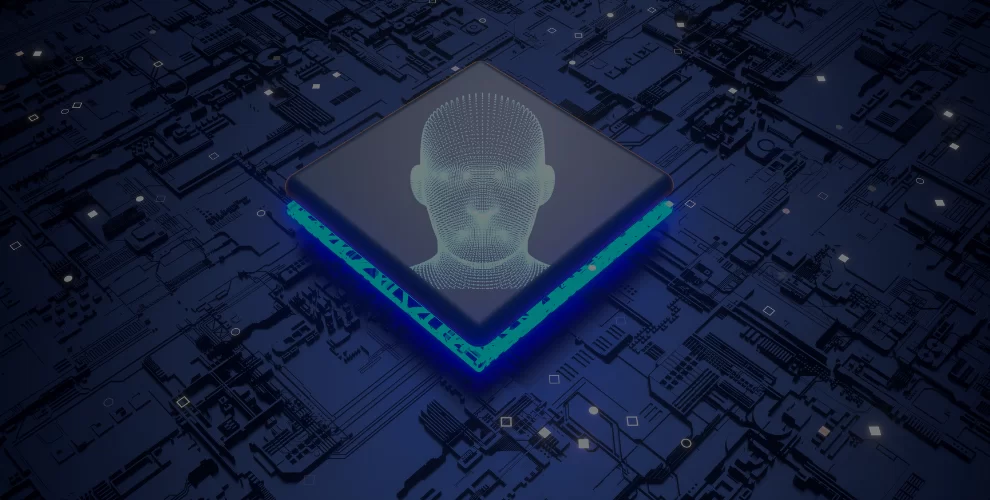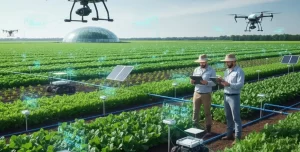
How AI is Driving Green Technology for a Sustainable Future
Table of Contents
Introduction
Welcome to WikiGlitz! Artificial Intelligence (AI) is playing a pivotal role in transforming green technology and driving sustainability initiatives.
As we face growing environmental challenges, integrating AI with sustainable practices offers innovative solutions that are crucial for a sustainable future. In this guide, we will explore how AI is revolutionizing green technology and its impact on various sectors.
Key Takeaways
- AI enhances the efficiency and effectiveness of green technologies, making them more viable and impactful.
- Integration of AI in sectors like energy, transportation, and agriculture significantly contributes to reducing environmental impact.
- Future innovations in AI-driven green technology hold the potential to address major environmental challenges and promote sustainability
The Role of AI in Green Technology
Definition and Scope of AI in Sustainable Tech
AI refers to the simulation of human intelligence processes by machines, particularly computer systems. In the context of green technology, AI encompasses a wide range of applications that enhance environmental sustainability, from optimizing energy usage to managing natural resources.
Benefits of Integrating AI with Green Technology
- Increased Efficiency: AI systems can analyze vast amounts of data to optimize processes and reduce waste.
- Predictive Capabilities: AI can predict and mitigate potential issues before they become significant problems.
- Automation: AI-driven automation reduces the need for manual intervention, leading to more consistent and reliable operations.
AI in Renewable Energy
Optimizing Energy Production
AI algorithms can analyze weather patterns and adjust the operation of renewable energy systems like wind turbines and solar panels to maximize energy production.
Predictive Maintenance of Renewable Energy Systems
AI helps in predicting equipment failures before they occur, enabling timely maintenance and reducing downtime.
Smart Grids and Energy Management
AI-powered smart grids optimize the distribution of electricity, reducing losses and enhancing the reliability of the power supply.
AI in Energy Efficiency
Reducing Energy Consumption in Buildings
AI systems can monitor and control lighting, heating, and cooling in buildings to minimize energy consumption.
AI-Driven Energy Audits
AI tools can conduct comprehensive energy audits, identifying areas where energy efficiency can be improved.
Intelligent HVAC Systems
AI-powered HVAC systems adapt to usage patterns and environmental conditions to maintain comfort while minimizing energy use.
AI in Transportation
Autonomous Electric Vehicles
AI enables the development of self-driving electric vehicles, which can reduce emissions and improve transportation efficiency.
Traffic Management and Route Optimization
AI systems can optimize traffic flow and reduce congestion, leading to lower emissions and fuel consumption.
Reducing Emissions with AI
AI algorithms can optimize engine performance and reduce the carbon footprint of traditional vehicles.
AI in Waste Management
Smart Recycling Systems
AI-powered sorting systems can identify and separate recyclable materials more accurately and efficiently.
Waste Sorting and Reduction
AI can optimize waste sorting processes, reducing the amount of waste that ends up in landfills.
Monitoring and Managing Industrial Waste
AI systems can monitor waste production in real-time, enabling industries to manage and reduce their waste more effectively.
AI in Agriculture
Precision Farming
AI technologies enable precision farming, where inputs like water, fertilizers, and pesticides are optimized for each crop’s specific needs.
Monitoring Crop Health and Soil Quality
AI-powered drones and sensors monitor crop health and soil conditions, providing data that helps farmers make informed decisions.
Optimizing Water Usage
AI systems can analyze weather data and soil moisture levels to optimize irrigation, conserving water and enhancing crop yields.
Challenges and Ethical Considerations
Data Privacy Concerns
The use of AI involves the collection and analysis of vast amounts of data, raising concerns about data privacy and security.
Ensuring Fair Access to AI Technologies
There is a need to ensure that AI technologies are accessible to all, including small businesses and developing countries.
Addressing the Environmental Impact of AI Itself
AI systems require significant computational power, which can contribute to energy consumption and carbon emissions. Efforts are needed to make AI itself more sustainable.
Future Trends and Innovations
Emerging AI Technologies in Green Tech
New AI technologies are being developed to further enhance the capabilities of green technology, from advanced energy storage solutions to smart cities.
Potential for AI to Solve Climate Change Challenges
AI has the potential to address complex climate change challenges by providing innovative solutions for carbon capture, climate modeling, and renewable energy integration.
Case Studies of Successful AI-Driven Sustainability Projects
- Google’s AI-Powered Data Centers: Google uses AI to optimize the energy usage of its data centers, significantly reducing their carbon footprint.
- IBM’s Green Horizon Project: IBM is using AI to improve air quality forecasting and optimize renewable energy production in China.
Conclusion
WikiGlitz has brought you this comprehensive guide on how AI is driving green technology for a sustainable future. The integration of AI with sustainable practices offers immense potential to address environmental challenges and promote a greener future.
By leveraging AI in renewable energy, energy efficiency, transportation, waste management, and agriculture, we can create a more sustainable world. Embrace the power of AI to contribute to a sustainable future!
FAQs
How does AI contribute to renewable energy?
AI optimizes energy production, predicts maintenance needs, and manages smart grids to enhance the efficiency and reliability of renewable energy systems.
Can AI help reduce energy consumption in homes?
Yes, AI can monitor and control home systems like lighting, heating, and cooling to minimize energy use and improve efficiency.
What are the ethical concerns with AI in green technology?
Ethical concerns include data privacy, fair access to AI technologies, and the environmental impact of AI itself.
How is AI used in waste management?
AI-powered systems improve recycling accuracy, optimize waste sorting, and monitor industrial waste to reduce environmental impact.
What are future trends in AI-driven green technology?
Future trends include advanced energy storage solutions, smart cities, and innovative solutions for carbon capture and climate modeling.
Want to keep up with our blog?
Our most valuable tips right inside your inbox, once per month.
Error: Contact form not found.
WikiGlitz Team
Welcome to WikiGlitz, your ultimate destination for tech insights and innovation. Our expert team is dedicated to delivering free resources and professional advice on various technology topics, including Artificial Intelligence, Cyber Security, Cloud Computing, and more. We strive to empower our readers with up-to-date information and practical guidance, ensuring you stay ahead in the rapidly evolving tech landscape. At WikiGlitz, we are passionate about making complex technology accessible to everyone. Our team of seasoned experts curates content that is both informative and engaging, helping you understand and leverage the latest tech trends. Whether you're a tech enthusiast or a professional, WikiGlitz is your go-to source for reliable, expert-driven content. Join us on this journey to explore and embrace the future of technology.





